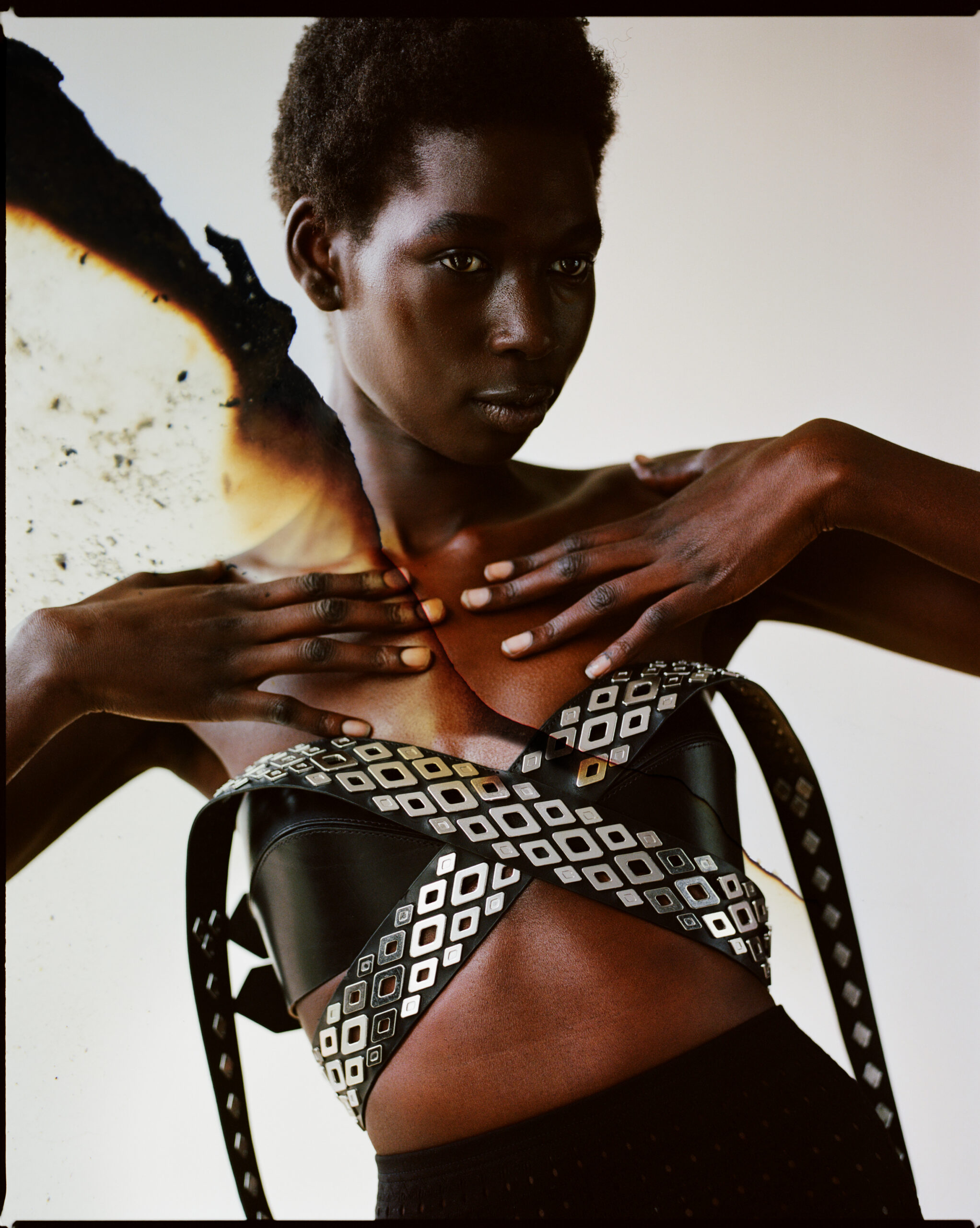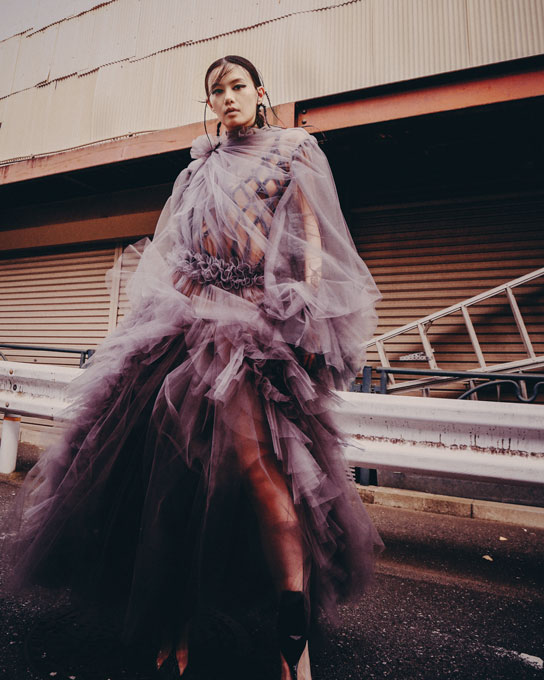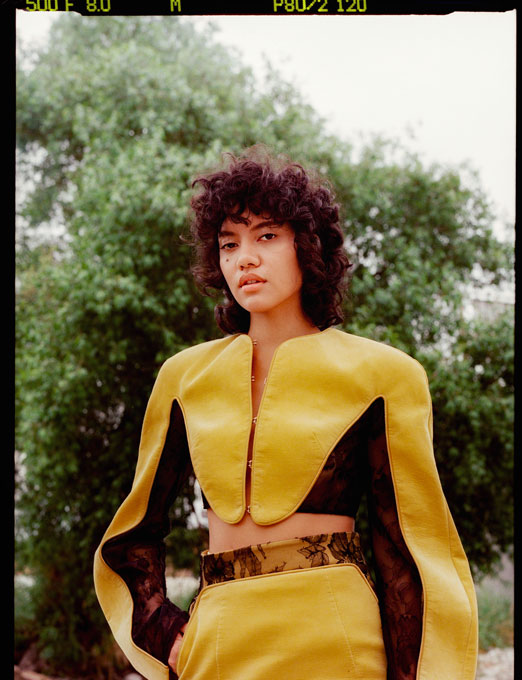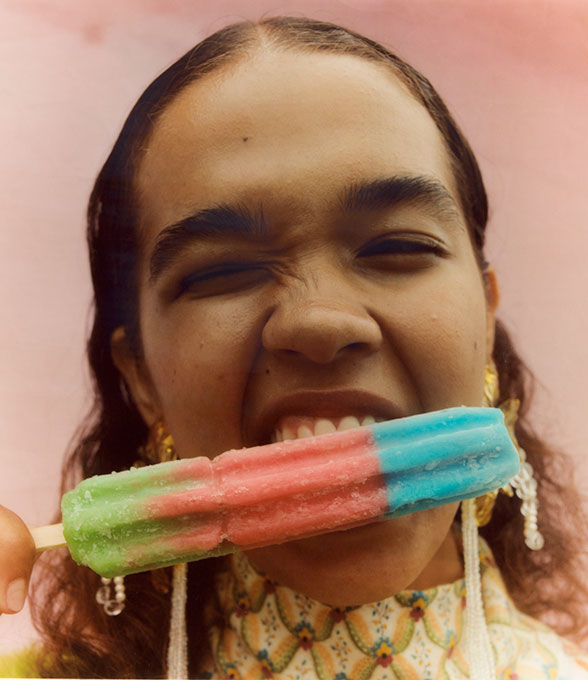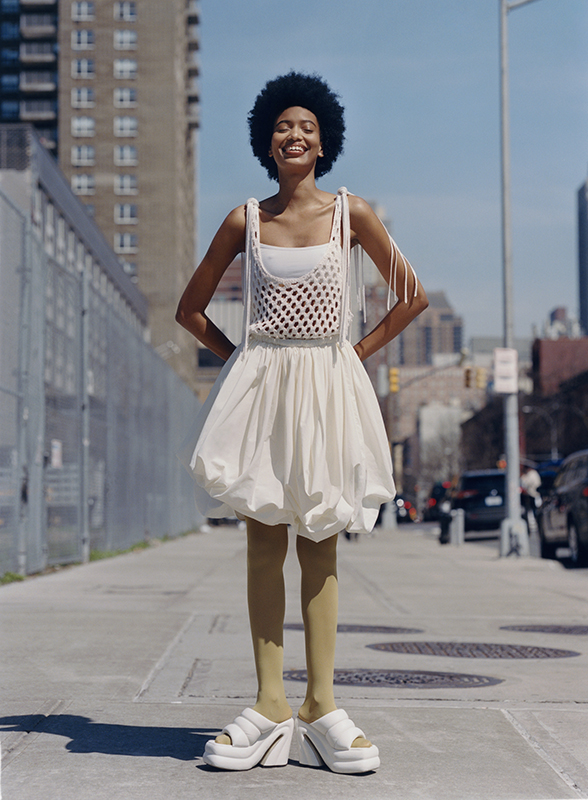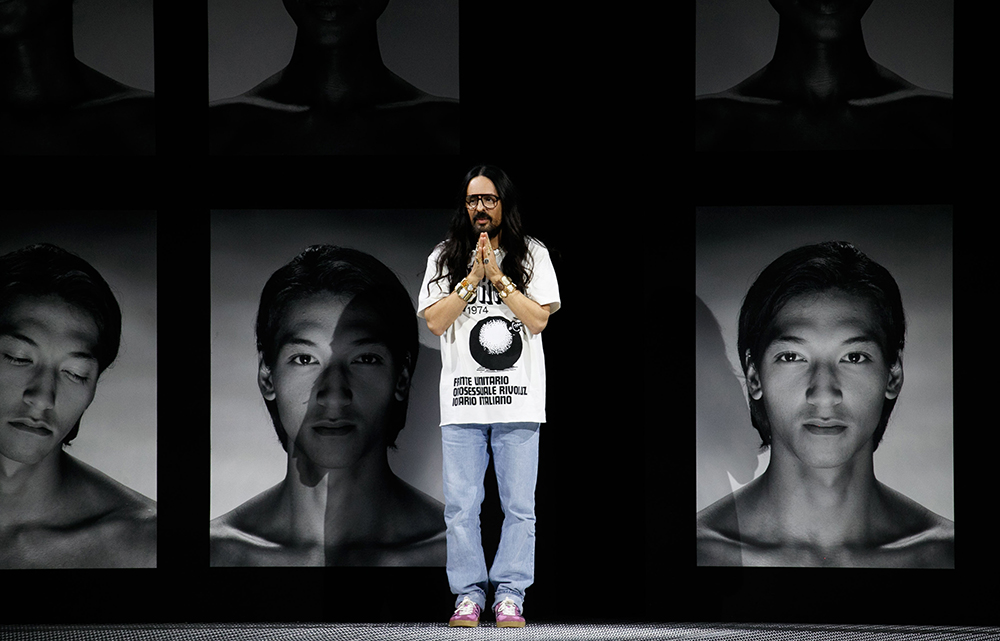Music
LIANNE LA HAVAS
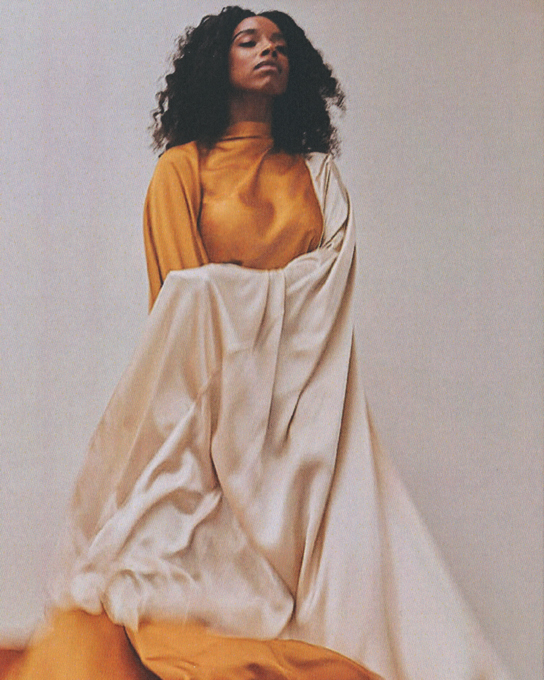
My Prettiest Scars: A Conversation with Lianne La Havas
words by Zachary Weg
images by David Vail
It started with a tree. While recovering from a break-up about a year and a half ago, a thirty-one-year-old musician, Lianne La Havas, noticed the changing foliage outside her London apartment and realized that she was transforming, too. As leaves changed color and roots died and then rose again, the British singer/guitarist underwent changes of her own, turning the grief she was experiencing into joy and hope and writing songs that reflected this process. The result of these efforts and her third studio album, Lianne La Havas, is her most confident and rewarding work yet.
Featuring such standout songs as the lush, hushed “Green Papaya” and the bass-tingled “Paper Thin,” La Havas’s eponymous new album bounces, slinks, and dives along with an understated ferocity that shows just how assured she has become over three albums. While her debut from nearly a decade ago announced the arrival of a stunningly sensitive new songwriter, her 2015 sophomore LP, Blood , conveyed a near rebelliousness that said not only had she come, she was here to stay. The new album from this past summer, then, melds La Havas’s calm and power to show an artist in full form, someone who has done away with any studio pressures or industry trends and is engagingly carving her own niche.
“A lot of art is influenced in some way by pain. It just seems to make you want to say something, doesn’t it?” she says. “When you’re hurting, you kind of want to discuss it or you want to know if somebody is feeling the same as you so you’re not alone. But there’s always a new perspective to be offered.” The new album’s songs feel fresh and almost radiant as if sprung from new soil and planted as flowers that can stand a while. “I’ll try to let it go, my fingers are crossed/I’ll show you my prettiest scars/They make us whatever we are,” she sings on “Please Don’t Make Me Cry” from the latest record, and one almost does tear up at this vivid portrait of pain and the strength that can be gained from it. Like the poet C.K. Williams, or the filmmaker, Paul Thomas Anderson, La Havas is a humanist, an artist who genuinely seems to want to help her fellow being.
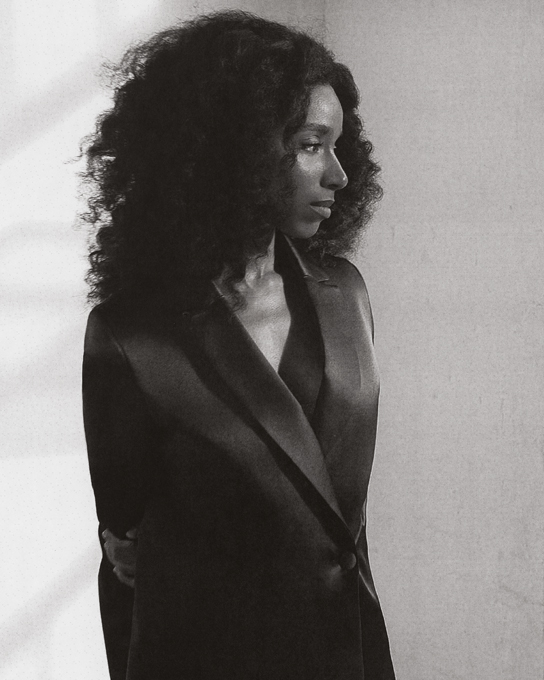
Lianne La Havas, thus, is an album for all: the middle-aged illustrator who sits alone at a coffee shop, the early-thirties real estate agent who’s never been seen with anyone, the nurse striving to restore breathing to the ailing coronavirus patient. It’s an album for dire times like these when so much is uncertain, and the world seems upside down, but also a work that can be returned to in years to come when you can go home after a long day and try to relax. It’s a salve, a candle, made by Lianne La Havas, a hallowed walker on this rough but glorious earth.
Partly, this endeavor results from La Havas’s dual Greek and Jamaican heritage and from absorbing the eclectic sounds of such London cultural hubs as Brixton. As she says via Zoom from England, “Making music was my way of just being completely myself, trying to make something that I just really love with no limitations, basically. That is how I’ve felt like me the most.” Initially, La Havas expressed herself in this way by playing the keyboard, but, at 18, she began playing the guitar. “It felt like a whole new world opened up,” she continues, a world that, of course, was rocked by such luminaries of the instrument as Jimi Hendrix and, more recently, St. Vincent but which La Havas has shaken to the core with her unique virtuosity.
Simply put, La Havas is one of the most masterful guitarists out there. Whether strumming gently on early career highlight (and a bold tale of intergenerational love), “Age” or scissoring and threshing on “Can’t Fight” from the new album, the artist compels with her delightful spontaneity on the chords. Therefore, it’s hardly surprising that none other than the late great Prince linked up with La Havas a few years back and became her mentor or that living legend Stevie Wonder left her a voicemail in which he sang one of her compositions. La Havas is an intriguing writer, too, whose stories of both heartbreak and resilience are universal yet come from a personal place.
Pieces of You Issue 12

